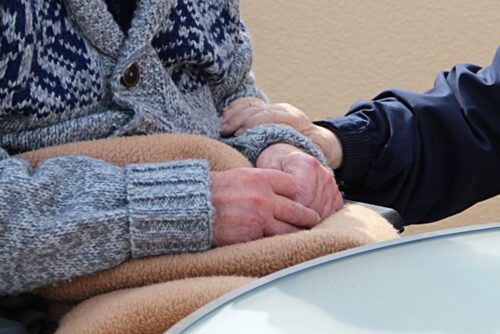
Entrusting the care of a loved one to a nursing home is a significant decision. You expect the facility to provide top-tier care, ensuring your family member’s well-being and health. However, there are unfortunately instances where nursing homes fall short, and one distressing manifestation of neglect can be malnutrition. If you suspect that your loved one is being neglected in a nursing home, please don’t hesitate to speak with a seasoned California nursing home abuse lawyer from Cowdrey Jenkins, LLP who can fight for the justice you deserve. Here are some of the questions you may have:
What are the most common signs of malnutrition in nursing homes?
Malnutrition in nursing homes is an all-too-common issue. Recognizing the signs early on is crucial to ensure the safety and health of your loved one. Some of the most common signs of malnutrition are as follows:
- Weight Loss: Rapid or unexplained weight loss can be one of the earliest and most noticeable signs. If your loved one seems to have lost a significant amount of weight without a clear reason, it warrants further investigation.
- Muscle Weakness: Malnutrition affects muscle mass and strength. Residents may struggle with movements they once found easy, such as getting out of bed or holding objects.
- Fatigue: If your loved one is constantly tired or has decreased energy, malnutrition may be a contributing factor.
- Depression or Mood Changes: Nutritional deficiencies can also affect a person’s mood. If your loved one appears more withdrawn or displays sudden mood shifts, consider the role that their diet might play.
- Swollen or Puffy Appearance: Paradoxically, malnutrition can lead to swelling in certain areas of the body due to fluid retention.
- Dental Troubles: Malnutrition can lead to dental issues, including bleeding gums, weakened teeth, or mouth sores.
- Decreased Immune Response: Malnourished individuals may fall ill more frequently, as their bodies lack the necessary nutrients to combat infections.
- Dull, Pale, or Dry Skin: The skin can offer key insights into one’s nutritional health. A change in its appearance, such as dryness or a paler complexion, might hint at underlying malnutrition.
The consequences of prolonged malnutrition are grave. It can lead to a compromised immune system, rendering the individual susceptible to infections. Additionally, muscle weakness from malnutrition increases the risk of falls, fractures, and reduced mobility. Furthermore, cognitive functions may decline, leading to confusion or difficulty concentrating. In severe cases, malnutrition can be life-threatening.
What should I do if I suspect my loved one is being malnourished in a nursing home?
If you think your loved one is being malnourished, you should take the following steps:
- Speak Up: Address your concerns immediately with the nursing home staff. Ensure they take your observations seriously and request an evaluation of your loved one’s nutritional intake.
- Document Evidence: Take pictures of any physical signs of malnutrition, and keep a detailed record of your observations and communications with the nursing home staff.
- Speak With a Doctor: Arrange for an independent medical examination for your loved one. A healthcare professional can provide a comprehensive assessment and recommend appropriate interventions.
- Consider Legal Action: If your loved one’s health is at risk and the nursing home is unresponsive or negligent, it may be time to consult a California nursing home abuse lawyer. They can guide you on the best course of action, ensuring that your loved one’s rights are upheld.
Nursing homes are entrusted with caring for some of our most vulnerable family members. That said, if you suspect neglect or abuse, seek legal counsel promptly. Your proactive stance can make a significant difference in the well-being of your loved one.